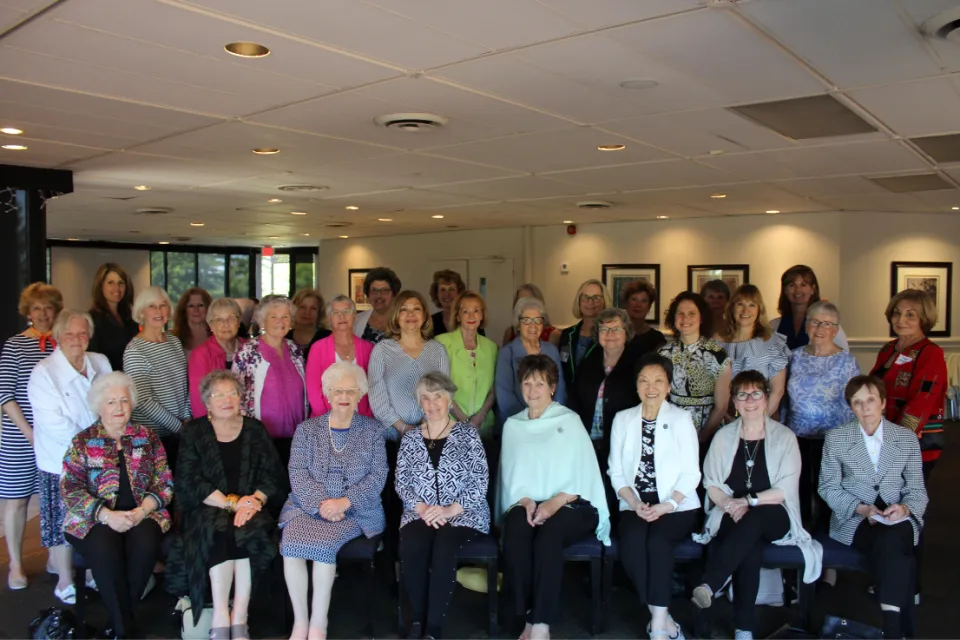
Pictured: Members of the WCG at a luncheon in 2019.
Living with multiple sclerosis (MS) is challenging, and its effects can have a significant impact on those living with the disease, their family members, friends and care providers. The wide variety of unpredictable symptoms vary significantly from person to person and even fluctuate within the same individual from day to day.
The University Hospitals Kingston Foundation’s (UHKF) Women’s Giving Circle (WGC ) is a group of women who come together to support ground-breaking medical research at Kingston Health Sciences Centre (KHSC) and Providence Care. The wonderful WGC donors voted to award $38,000 toward an MS research project, lead by Dr. Marcia Finlayson and Dr. Dorothy Kessler from the School of Rehabilitation Therapy at Queen’s University, alongside co-investigator Dr. Moogeh Baharnoori, Neurologist and specialist in MS at KHSC.
“Canada has one of the highest rates of MS anywhere in the world,” says Dr. Finlayson. “It affects more women than men and, even though it is often discussed as a disease of young adults, it has been diagnosed in people aged eight to 80 and beyond. It’s important that we explore ways to support people living with this disease to engage in everyday life, and this study will do just that.”
The study aims to assess the impact of Occupational Performance Coaching (OPC) on individuals living with MS. It will explore ways in which coaching removes barriers to daily activities.
“People living with MS need strategies that work for them to manage the unpredictability of their symptoms and their daily lives,” says Dr. Kessler. “OPC is tailored to each individual and guides them to set goals, problem solve when things change, find solutions and make decisions. It builds knowledge, confidence and skills to really empower people to identify and continue to take part in what is most important to them.”
“Given the variability of MS, having a library of skills to rely on could help people manage their MS over time,” says Dr. Finlayson.
The implications of a study like this has the potential to be felt by people living with MS far and wide, which is why the grant from UHKF’s WGC is so vital.
“Thank you very much to the Women’s Giving Circle for funding our study,” says Dr. Baharnoori. “Without your support, this work wouldn’t be happening. Your generosity and thoughtfulness will help provide information that can be used for broader program planning and will enable people affected by MS to lead healthy and satisfying lives.”
Contact UHKF at 613-549-5452 or visit www.uhkf.ca/WGC to learn how you can join the WGC.